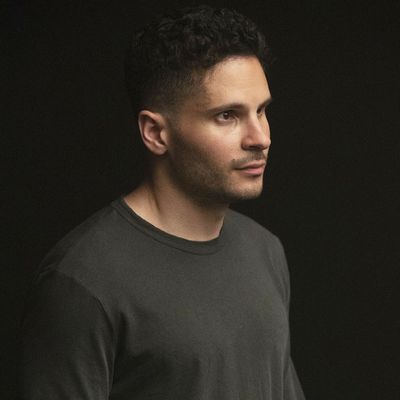
Drew Michael’s new, self-titled HBO comedy special is almost impossible to criticize, mainly because it preemptively criticizes itself. An experimental, extended monologue, it’s more a commentary on the self-absorbed nature of comedy than an actual LOL-filled 49 minutes of stand-up. In a lot of ways, it fits right in with the self-analytical, boundary-pushing specials that have emerged this summer, even as it seeks to stand out as something radically different from the standard stream of joke-filled storytelling. Ultimately, I respected it more than I actually enjoyed it.
Like Ali Wong does in Hard Knock Wife, or Cameron Esposito does in Rape Jokes, or Hannah Gadsby does in Nanette, or even Jerrod Carmichael, who directs Drew Michael, has done in his specials, Michael gets autobiographical while digging into topics considered taboo. He talks about his lifelong partial hearing loss and how rude and impatient some people get with individuals whose ears function less than perfectly. He also says he understands why people get rude and impatient because there are times when he would rather see his own elderly grandmother die than have to repeat the same sentences to her over and over. “Something’s gotta give here,” he quips. “It might as well be the person who can only eat sweet potatoes.” He also does an extended riff on suicide and the response to comedy about suicide, noting that a man once told him he didn’t care for Michael’s jokes on the topic because his nephew recently killed himself. “I’m sad right now hearing about that,” Michael imagines telling the guy, “because your nephew would have loved that joke.”
That riff on suicide eventually takes a turn that, as Michael explains, suggests that the entire thing was more “about empathy” than his desire to elicit giggles about a sensitive subject. This is just one of the ways in which Michael’s approach asks us to think about how we respond to comedy and the fact that comedians often exist in a self-imposed bubble that prevents them from properly gauging the effect of their words. Like Gadsby, but with less directness, Michael suggests that we’ve reached a point where we need to reframe our ideas about stand-up and its purpose.
He conveys that not only in what he says, but in the format of Drew Michael. As directed by Carmichael, on whose since-cancelled sitcom Michael appeared, the special doesn’t take place on a stage or in front of an audience. It mixes footage of the former SNL writer unspooling his on-camera observations against a black void, as if he’s appearing on the equivalent of Charlie Rose without the benefit of a table, chairs, or a host. That’s intermingled with footage of Michael’s “girlfriend,” played by Suki Waterhouse, FaceTiming with him. We hear but never see Michael during those exchanges, another way that Drew Michael reminds us that comedy is rooted in the one-sided perspective of the comedian and that said comedian is usually male.
There is no face-to-face interaction of any kind between them until the very end, when a light comes on in the pseudo–black box space and Waterhouse emerges to call out Michael for everything that’s been wrong with his special. It’s boring, she tells him, and self-indulgent, and what’s more, not funny. “It’s just been watching you jerk yourself off,” she says. “And I’m really sick of it.”
“It’s the same dynamic as all your relationships,” she adds. “You come in here and say whatever you want and then you leave. Like a fuckin’ pussy.”
On one level, this is a preemptive strike against criticism someone like me might level at this special. Waterhouse mentions a lot of the flaws in this HBO offering: It definitely drags and comes across as navel-gaze-y and doesn’t land that many punch lines. But in a broader sense, Waterhouse’s angry response is an indictment of how comics approach comedy in general and an acknowledgement that, thanks to social media and the ongoing culture wars in America, we’re reached a flash point in terms of what we need from it and how we discuss it. The slightly wounded, blank expression on Michael’s face after she issues that indictment expresses what a lot of comedians may feel these days: Okay, so what do I do now?
The answer to that will obviously differ from comedian to comedian, but I’m inclined to look to Hannah Gadsby, who, in Nanette, didn’t abandon the traditional format of the stand-up special. Instead, she found ways to stretch and find deeper meaning within it, by treating serious issues with the seriousness they deserve, getting personal, surprising her audience, and still being genuinely hilarious. She cracked the code, whereas Michael merely acknowledges that there is a code in want of cracking.
In different ways, the two specials breathe fresh oxygen into a genre filled with stale air. I admire both for doing that. But I don’t exactly enjoy or appreciate Drew Michael in the same way as Nanette. The HBO show makes me think. It’s inventive and cerebral, and insists that you ponder the mechanics of comedy, which is a valuable exercise. But it also leaves me asking the same question that Waterhouse lobbed in Michael’s face: “Where’s the funny in this?”


